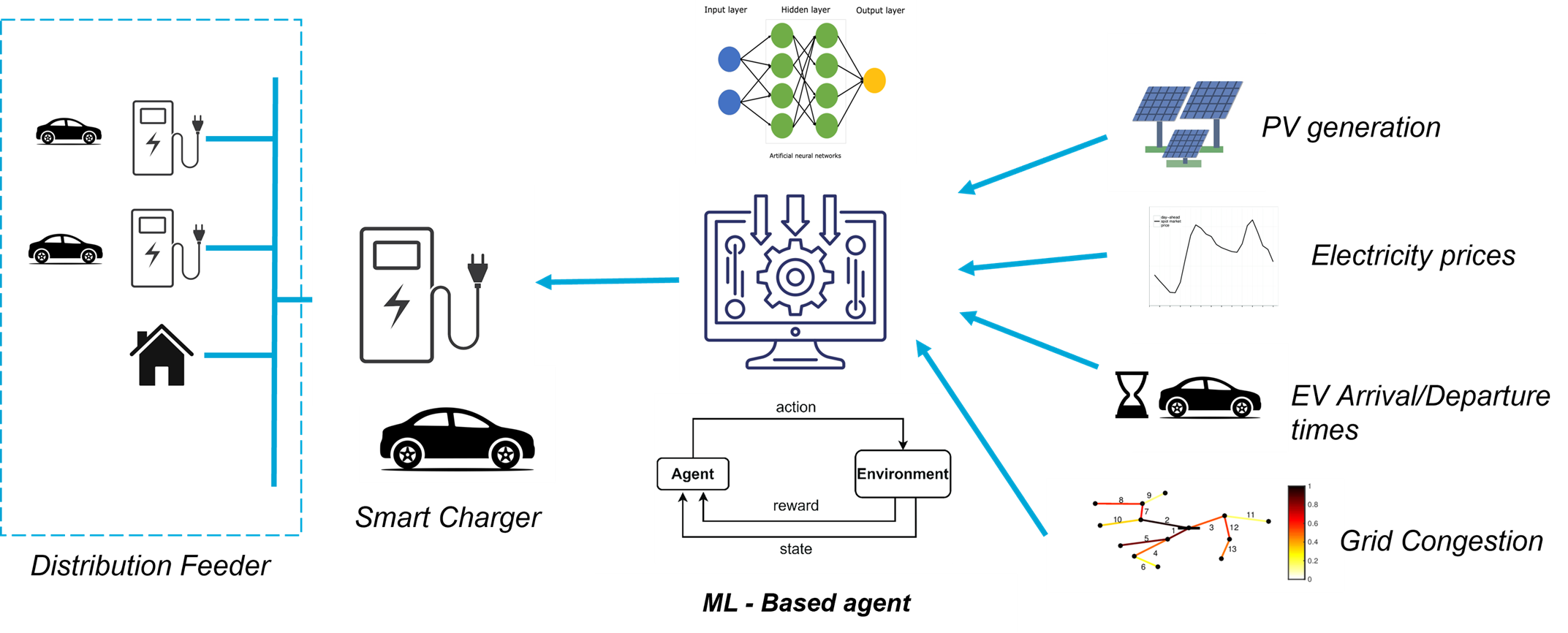Enabling Mass Deployment of Machine Learning-Based EV Smart Charging

Project description
Uncontrolled charging from massive adoption of electric vehicles (EV), puts pressure on the existing power grid. These problems can be mitigated through grid expansion but requires high investment cost. Alternatively efficient energy control (i.e., peak shaving and arbitrage) can be employed to avoid grid expansion as much as possible.
To optimally schedule EV load, optimization techniques regarded as traditional, such as Linear Programming (LP) and Mixed Integer Linear Programming (MILP) can be used. However, these techniques assume perfect information of input parameters such as price, solar power generation, and EV arrival/departure. Moreover, non-linearities appear from battery degradation and CC-CV charging behavior of EVs. Quadratic programming can solve non-linearities while stochastic optimization can handle uncertainties in the input parameters. Despite that, they suffer from scalability issues as computational requirements add up with the number of variables introduced in the problem.
With the advancement of measurement tools, data availability, and increasing computational power, Machine learning approach is a promising tool for EV charging optimization. Machine learning offers a model-free approach and a generally faster execution compared to traditional methods.
This research is part of the “Charging of electric vehicle using machine learning” project, a joint effort between TU Delft, Shell, and Shell recharge. The project aims to formulate a scalable, machine learning-based, EV smart charging algorithm and investigate its effect and feasibility on grid impact mitigation. Furthermore, the proposed algorithm will be tested in a hardware in the loop setup to verify its practicality considering standards and real equipment constraints.
PhD candidate:
Bagas Priambodo
Supervisor:
Gautham Ram Chandra Mouli
Promotor:
Pavol Bauer
Mathijs de Weerdt
Funded by:
Shell
